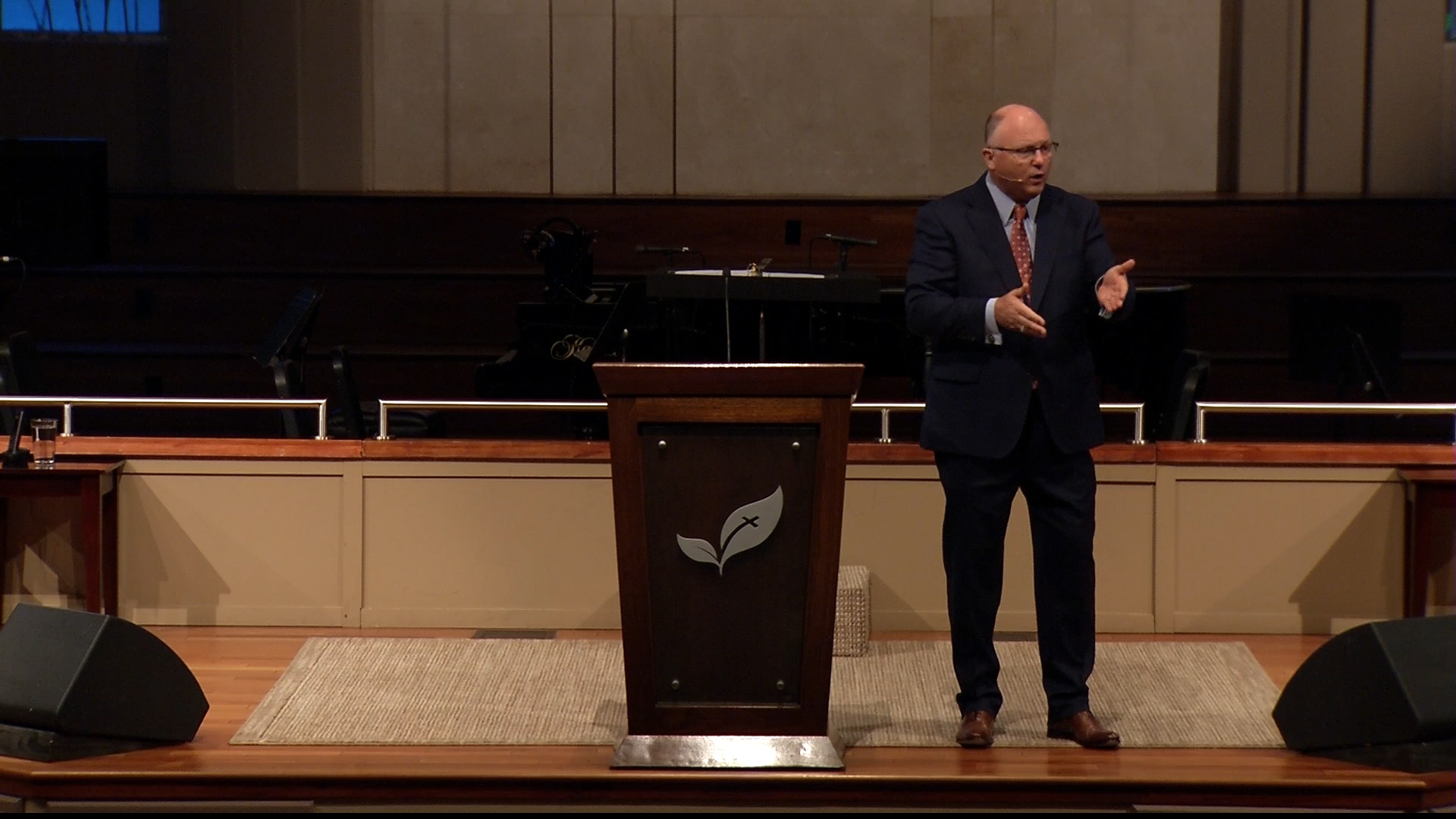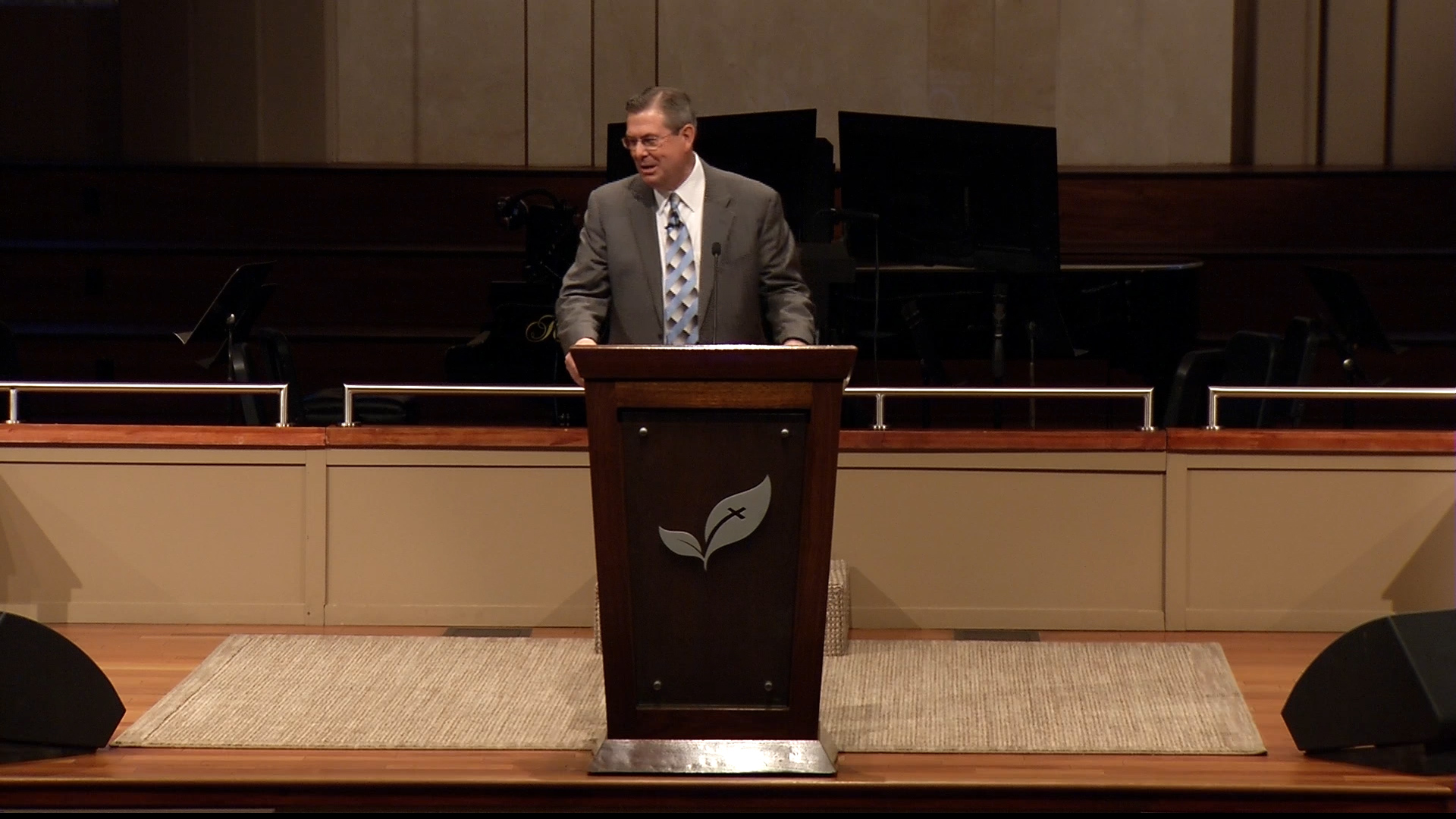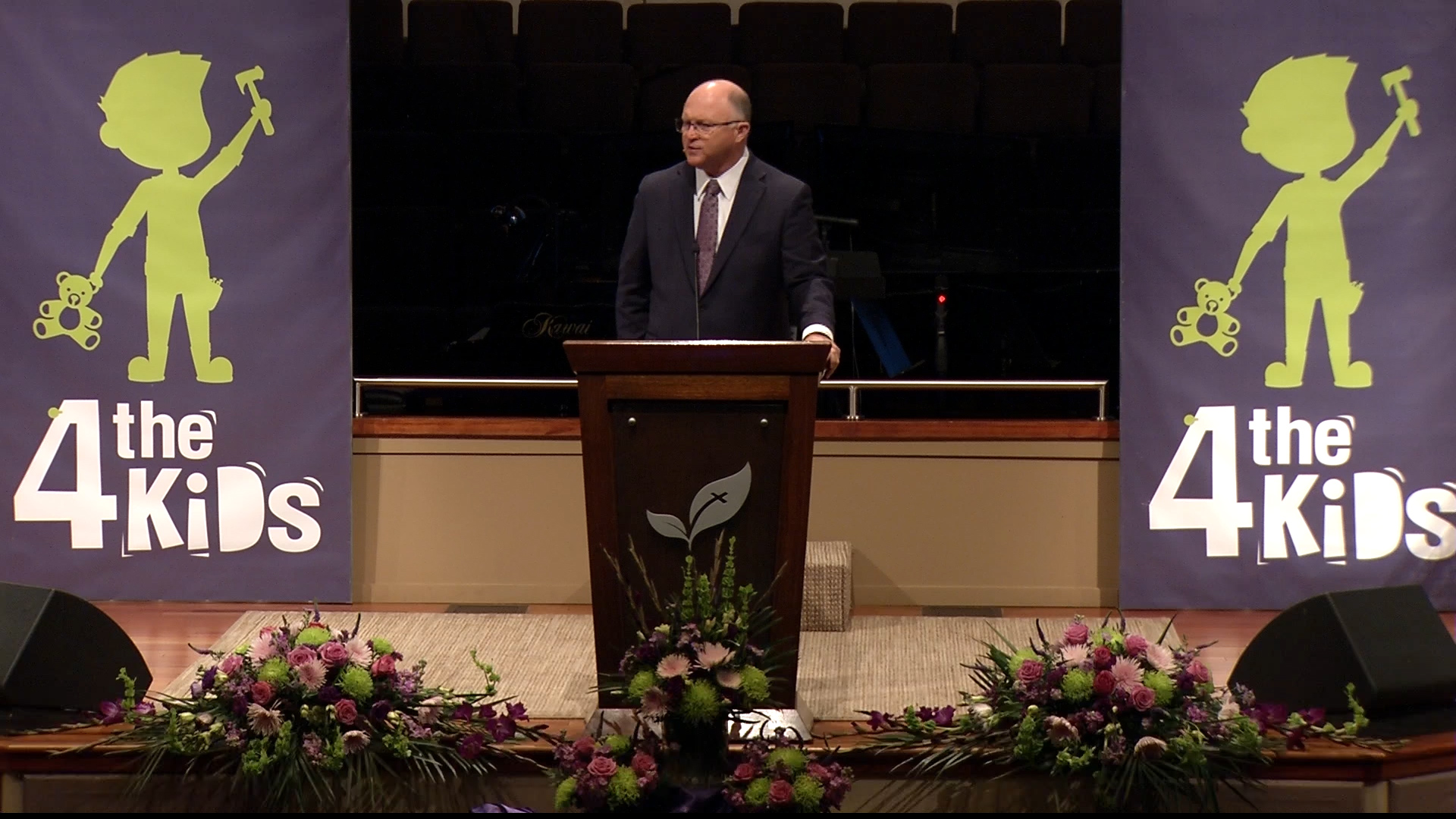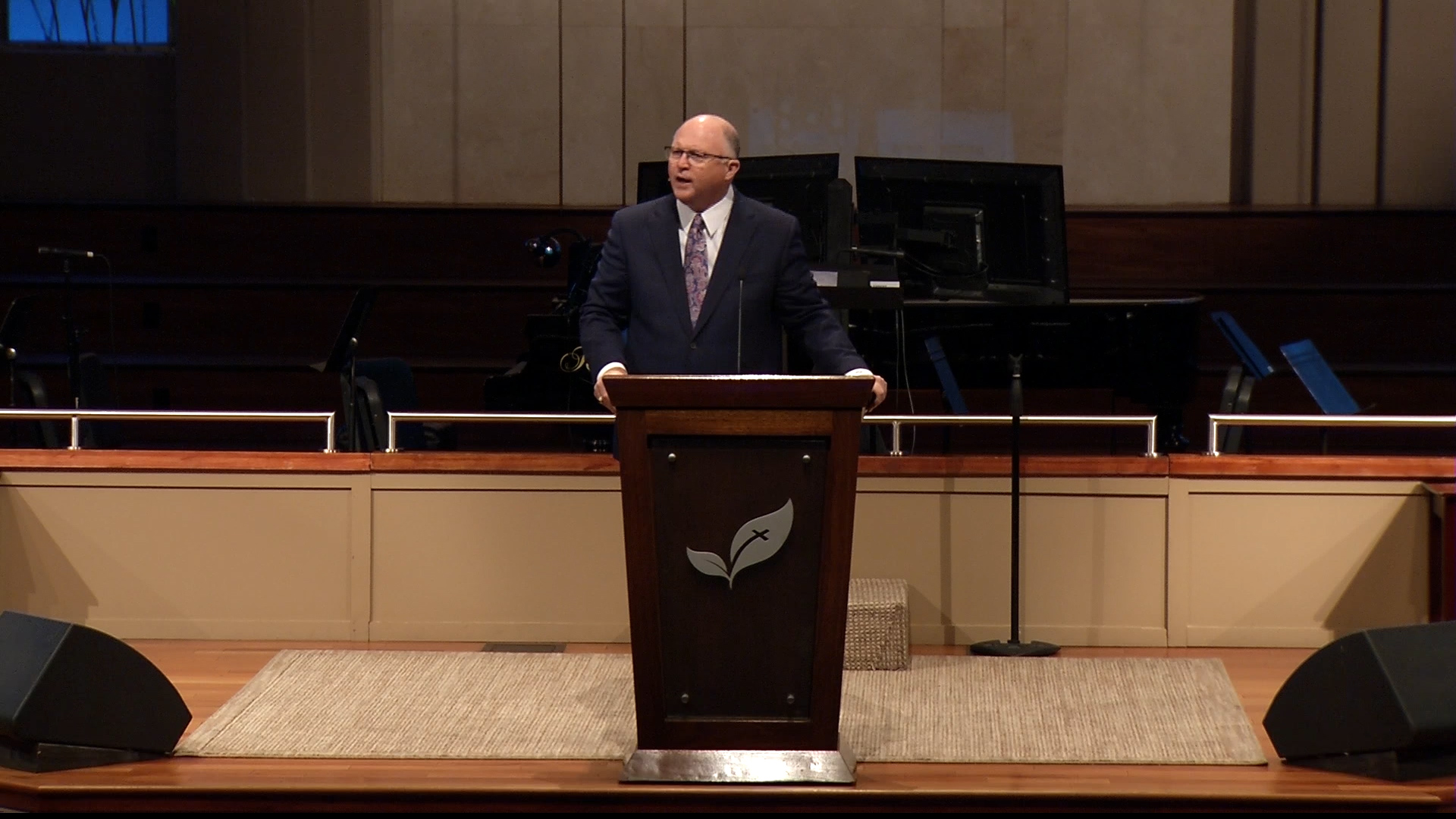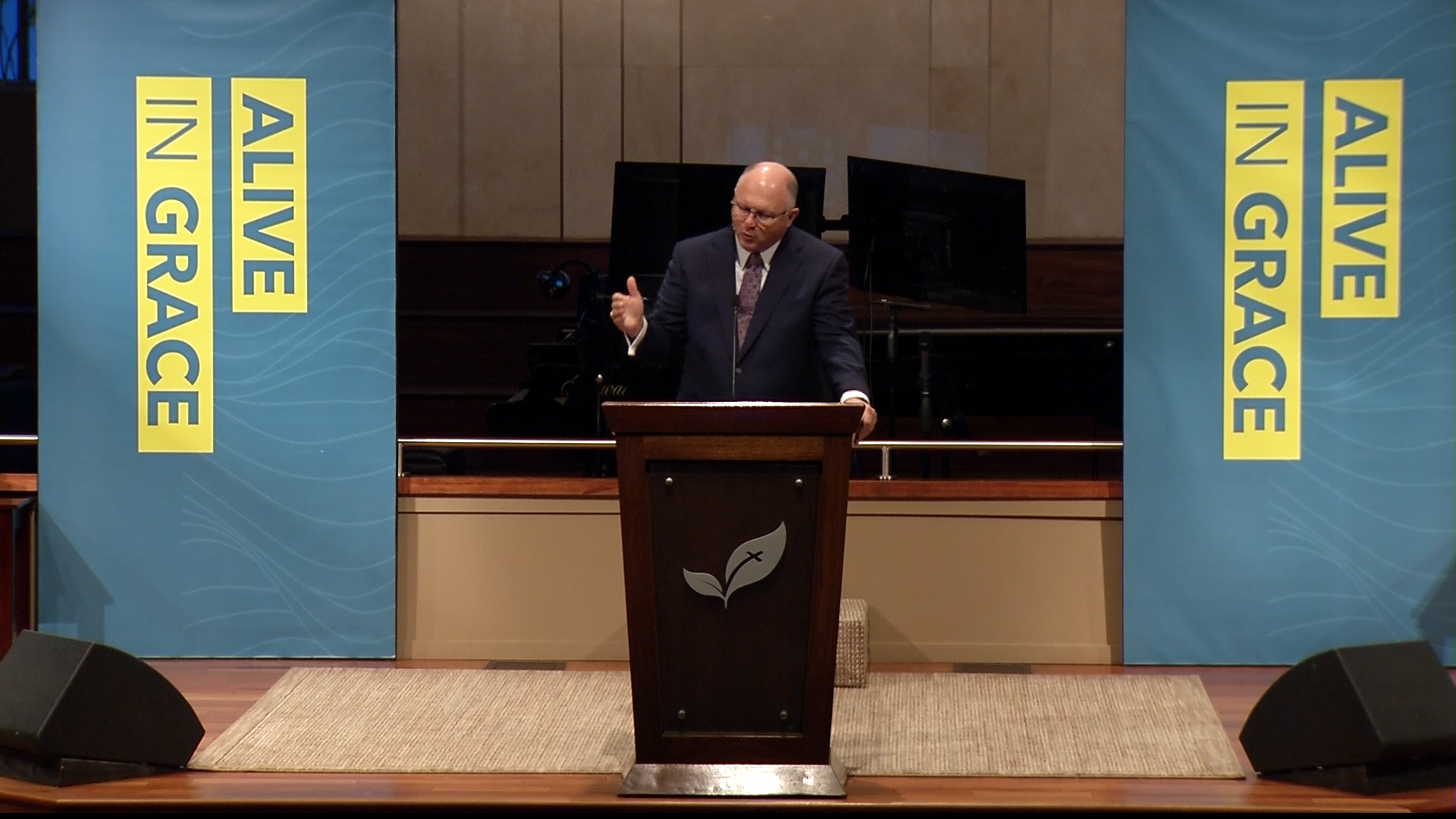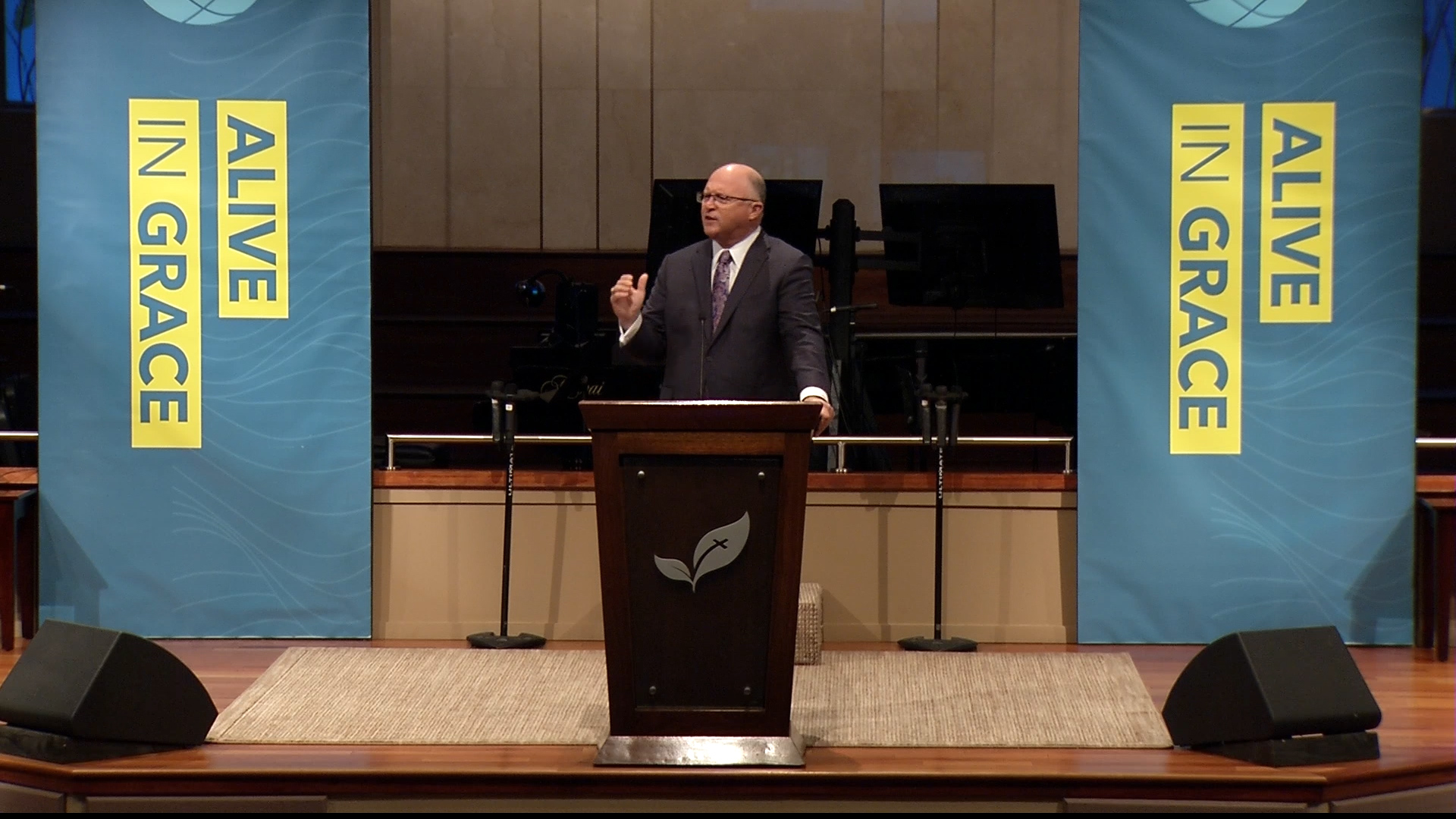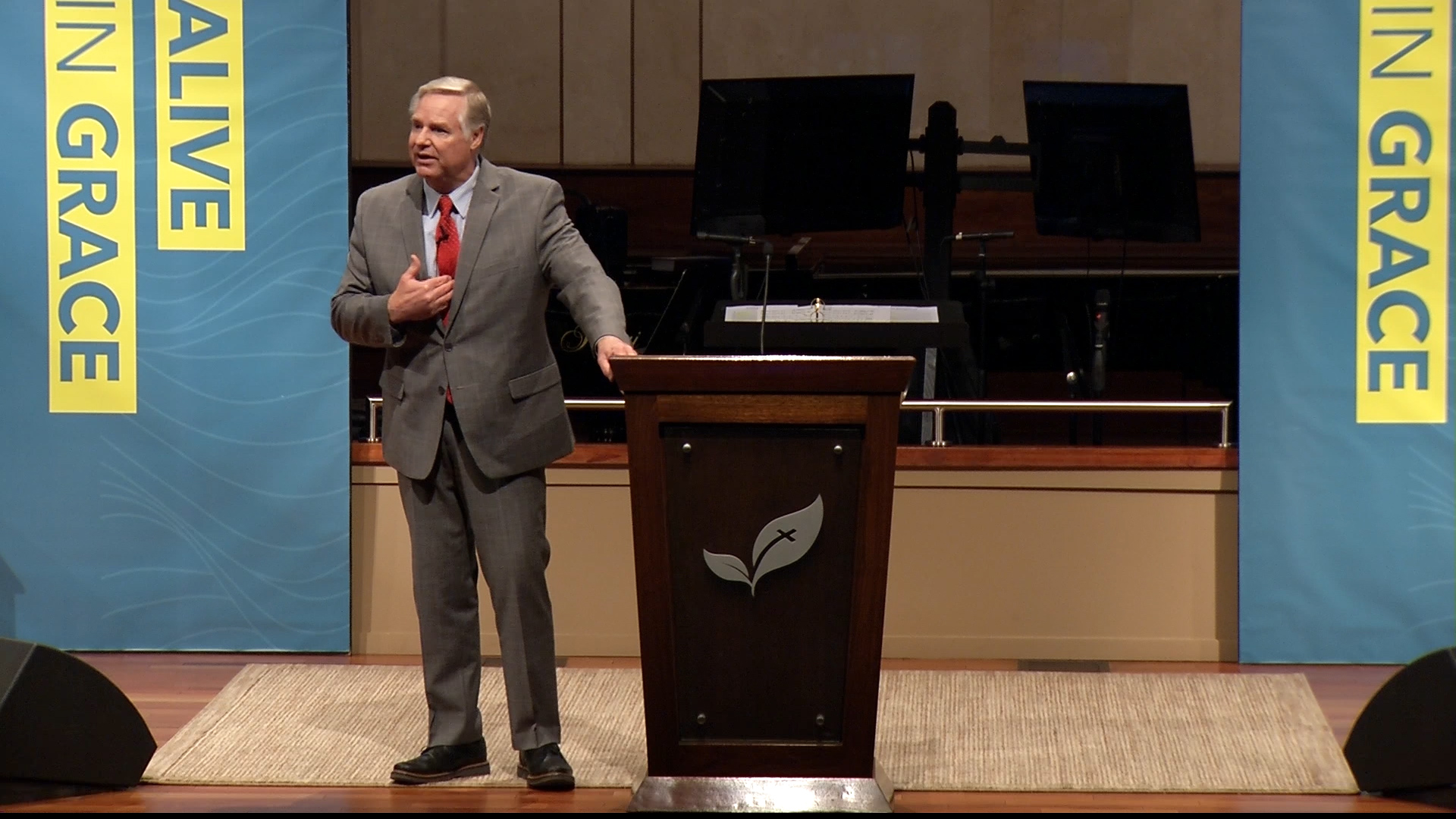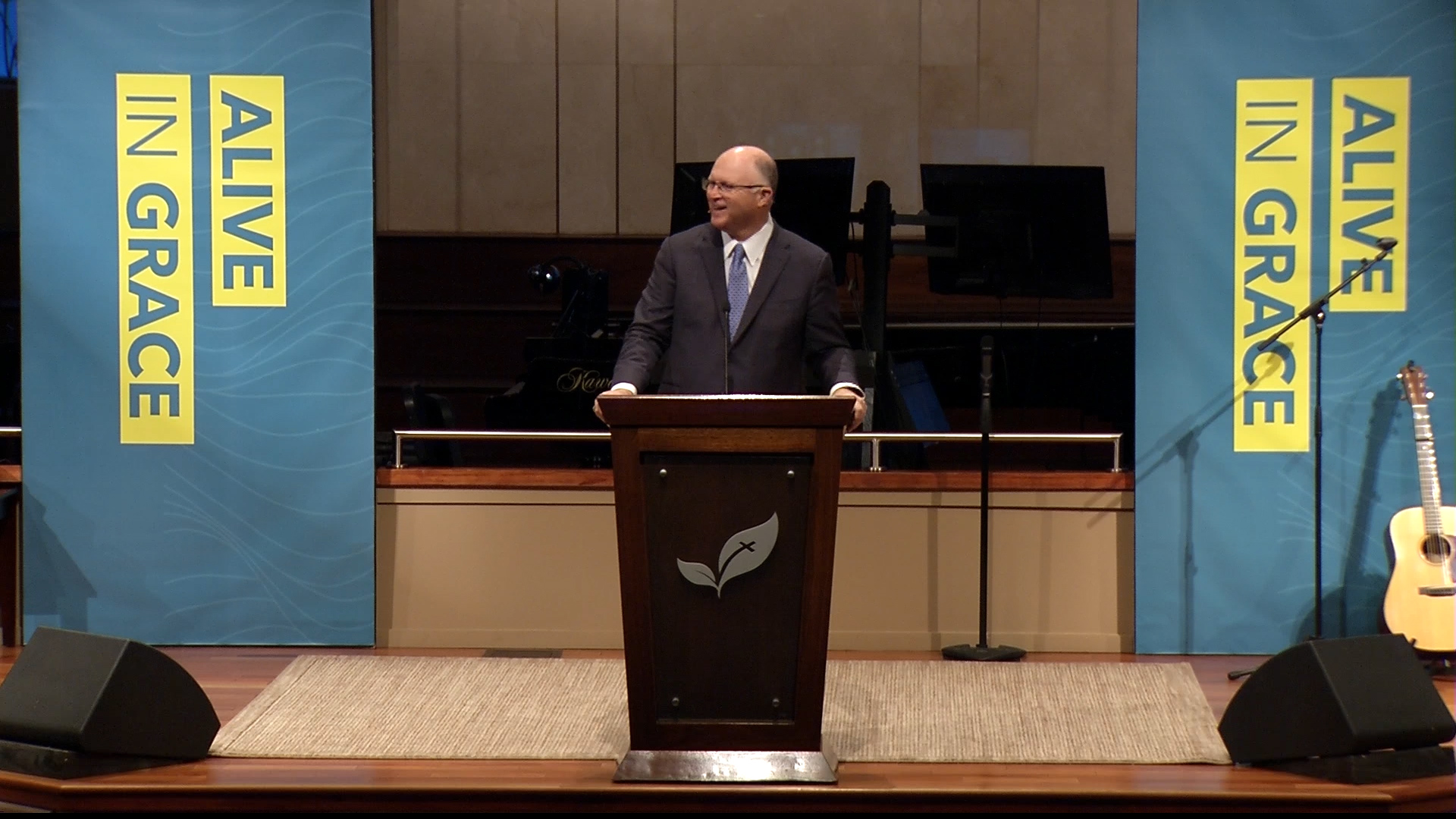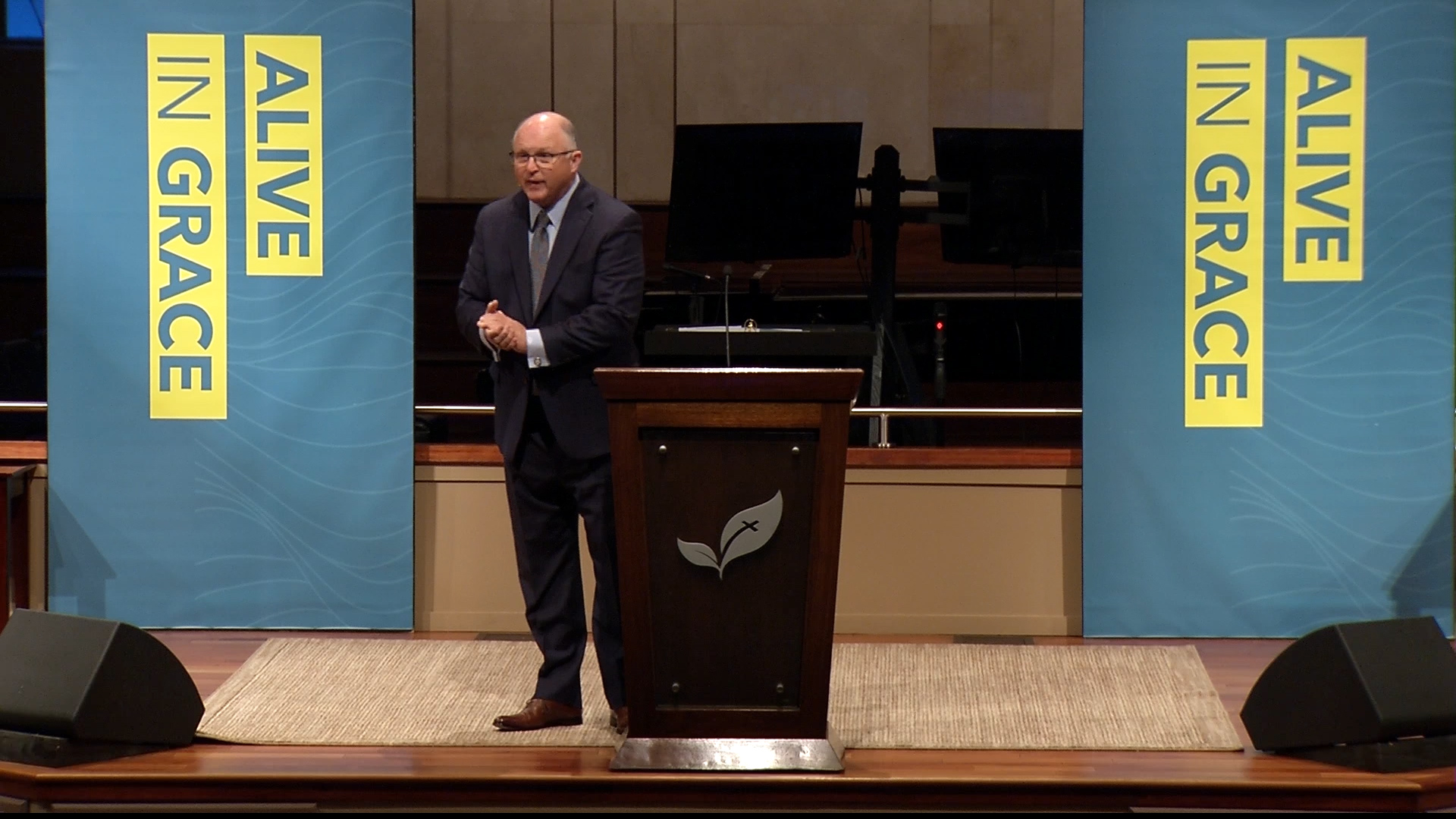Joshua chapter 4: "And it came to pass, when all the people were clean passed over Jordan, that the Lord spake unto Joshua, saying, 'Take you twelve men out of the people, out of every tribe a man, and command ye them, saying, "Take you hence out of the midst of Jordan, out of the place where the priests' feet stood firm, twelve stones, and ye shall carry them over with you, and leave them in the lodging place, where ye shall lodge this night."' Then Joshua called the twelve men, whom he had prepared of the children of Israel, out of every tribe a man: and Joshua said unto them, 'Pass over before the ark of the Lord your God into the midst of Jordan, and take you up every man of you a stone upon his shoulder, according unto the number of the tribes of the children of Israel: that this may be a sign among you, that when your children ask their fathers in time to come, saying, "What mean ye by these stones?" then ye shall answer them, "That the waters of Jordan were cut off before the ark of the covenant of the Lord; when it passed over Jordan, the waters of Jordan were cut off." And these stones shall be for a memorial unto the children of Israel forever.
"And the children of Israel did so as Joshua commanded, and took up twelve stones out of the midst of Jordan, as the Lord spake unto Joshua, according to the number of the tribes of the children of Israel, and carried them over with them unto the place where they lodged, and laid them down there. And Joshua set up twelve stones in the midst of Jordan, in the place where the feet of the priests which bare the ark of the covenant stood: and they are there unto this day."
I want to speak to you this morning on the subject, "That this may be a sign among you that when your children ask their fathers in time to come, saying, 'What mean ye by these stones?'" And I pray that that phrase will have some meaning in your heart a few minutes from right now. Let's pray together.
Lord, thank you for the wonderful Spirit and the tremendous crowd of folks that have gathered on this cooler February day. I pray that you would warm our hearts, sharpen our vision. Help us to have a real purpose for living as we gather around your eternal truth. Bless the song we're about to hear from the children, and then bless as we move into the service and then the preaching time. We just want you to guide us today. And we ask this in Jesus' name. Amen. You may be seated.
I want you to notice here in Joshua chapter 4 and I want to speak to you about the grace that God placed upon Joshua's life. Now many of you remember the story. You remember the story of the exodus, right? You remember how that Moses went to Pharaoh and he said, "Let my people go," and Pharaoh hardened his heart. And the Bible tells us how the plagues came upon Egypt, and how difficult it was. And finally the children of Israel were able to leave Egypt. God parted the Red Sea. They get out into the wilderness, and yet something happened. The adults – how many of you are adults and you'll admit it? Let me see. All right, good.
The adults lost their faith. The adults get out there and they start murmuring and they start saying, "Why do we got to do this for?" Some of them even wanted to go back to Egypt. That's why we sang that song this morning "I Can't Go Back," because the tendency with some Christians is to backslide. And so they started murmuring and wandering.
Somebody tell me, how many years did they wander for, remember? Forty years they're wandering around in the wilderness. Well finally, most of the adults that had lost their faith died. But there were a couple older people remaining. Their names were Joshua and Caleb. Joshua and Caleb were the two spies that wanted to go in the first place into the Promised Land. And God came to Joshua, he said, "Joshua, I want you to lead these people into the Promised Land."
And so, as we come to the book of Joshua we find that God says, "I want you to take the ark of the covenant, that piece of furniture that has the mercy seat on the top where the blood was sprinkled, that picture of Jesus. I want you to let that go in front of you, and then I want all the people to follow the ark of the covenant. I'm going to open the Jordan River, and I want you to take them into the Promised Land where I intended them to go in the first place."
And I've been thinking about that in my mind. What a beautiful sight that must have been, you know, the ark of the covenant out in front. The mercy seat made of gold, glistening in the sun; and moms and dads and kids walking by the hundreds of thousands, finally doing what God had told them to do.
Well, as this is taking place there's a command, and I want you to notice the command. It comes to Joshua in verse 2, and in verse 2 God says, "I want you to take twelve men out of the people, every tribe a man, and I want you to command them and I want you to tell them to get a stone, one stone out of the river for each man. I want them to go to the midst of the river."
Keep in mind, the river is dry. Keep in mind that they have been crossing the river on dry land. God says, "I'm going to specifically give you this command." It's a specifically given command. "I want you to go into the middle of the river. I want you to lift out a rock and put it on your shoulder," one rock for every one of the twelve tribes of Israel. So it was specifically given to them.
And I want you to notice also, it was readily received. And there's a little phrase I want you to see in verse 4, it says this: "Then Joshua called the twelve men." It didn't say he had to find them. In other words, he called them and they were there, they were ready. May we be the kind of church that when God calls, we're ready.
Joshua called them and they were ready to do the job. Some churches you need to have the FBI and the CIA find members of the church. I mean, their name's on the roll, but only God really knows where they are on a Sunday morning. But here we see that God said, "Get twelve men, call them," and they were ready. They were in their place to do what God wanted them to do. They all had their part to play. So God gives a command.
Then I want you to notice, secondly, the cause. Now someone might wonder. And some of you, I could see, because Baptists, we're really good at wondering why, why, why, why all the time, you know. And I think somebody might have wondered, "Why are we going in the middle of the river to pick up rocks? What exactly is the purpose with this? I mean, Joshua, is this the early onset Alzheimer's? Since when do we go pick up rocks?"
Well, how many of you know that God always has a cause with his commands or a reason? God always has a reason, and he has a purpose. And I want you to see the cause. The first cause was to place a tribute or a memorial in their midst. This area would later become called Gilgal, which would mean a place of rest and remembrance.
And the Bible says in verse 6, "that this may be a sign among you." You see, the idea of creating a memorial of stones that we put inside, this is nothing new; it's something actually biblical. God said, "I want you to build up a memorial. I want you to make a tribute to what I have done here," and he specifically uses the word "sign." He said, "I want this to be like a sign."
So when you go by certain signs, some of them say 55, some say 65, some of them say, "Slow down." When you go by a sign it's to cause you to think. And God says, "I want people whenever they come by this way again to think about how powerful I am, to think about how miraculous this was, the parting of this river." Psalm 105:5, "Remember his marvelous works that he hath done; his wonders, and judgments out of his mouth."
Now I want you to think about this. This building program at Gilgal, this raising up of these stones was 100 percent for the kids. That's what it was all about. You say, "Well, why do you say that?" Well, look at verse 6, "that this may be a sign among you, that when your children ask their fathers in time to come, saying, 'What mean ye these stones?'" So God said, "This is all about the kids. This is all about the children."
And I want to remind you that what we're doing the next year or two here at Lancaster Baptist is all about the kids, it's all about the next generation. And we're going to raise up a memorial out on the side there. And sometimes we've done other memorials and some people give and they don't want anybody to know about it, and that's totally fine. Sometimes people give and they'll give in honor of Adoniram Judson or in honor of Grandma Sue, and they'll say, "This is lovingly given by the Smith family."
And you may want to do that with a kid's building, you may want to do that in the kid's auditorium or one of the rooms, or the technology, or whatever the case might be. But it's not wrong to bring remembrance to someone or to something that God has done; and that's what's happening here. You see, the children of the Antelope Valley need to know that God loves them. They need to know that people love them.
Did you know that prison population has increased by 70 percent since 1984 – by 700 percent, rather, since 1984? They can't build prisons fast enough. And many of the kids who ride our buses their fathers are in prison. The only loving father figure that some of them will ever see in their adolescent years is the man that stands up in Sunday School and teaches them about Jesus Christ. Maybe a good man in school, if there's one there that takes an interest in their life.
Approximately one-third of children in the Antelope Valley have absent biological fathers. Seven-tenths of high school dropouts are fatherless. Fatherless teen girls are four times more likely to become pregnant. The overall trend of fatherlessness is up in every ethnic group. Fatherless teens are twice as likely to commit suicide.
There needs to be a church in this valley, and we are uniquely positioned to be that church that says, "The society around you may not care for you, but God loves you, and he has a wonderful plan for your life." And that's the message we want to give in these buildings. It's a place of tribute.
Secondly, it's a place of teaching, it's a place of teaching. Did you see that in verse 6? It says, "when your children ask."
Now how many of you have noticed that children ask, right? We had four kids, we have ten grandkids; they ask stuff all the time. It's like the little girl that got up on her papa's lap, and she was sitting there and kind of looking at him, and she said, "Papa, did God make you?" and he said, "Yes, he did." And she looked at his wrinkled hands and his scarred arms and his wrinkled face, and then she looked at her smooth hands and smooth arms and smooth face. And she thought about that for a minute, and she said, "You know, Grandpa, God's doing a lot better job lately." They're just always thinking.
And God said, "Not if the children ask, when they ask." And when they go by the monument we're placing out here, it's not if, it's when they ask, "What mean ye by these stones? What is the purpose of this?" And the Bible tells us that in Psalm 78:6, "that the generation to come might know them," speaking of the commandments of God, "even the children which should be born; who should arise and declare them to their children."
If Jesus tarries in his coming, there will be children not even born yet. They're going to walk into that building, they're going to walk past that monument, and they're going to say, "What's this all about?" and somebody's going to say, "Oh, you know, back in the day our parents, our grandparents believed God, and they loved us, and they wanted us to have a place, a special place to learn about Jesus."
Now you say, "Pastor, really? Does it have to be that special? Isn't it the heart of the teachers?" And by the way, we have the best teachers in California and in the world, and they deserve these facilities to teach from.
But it's really this. A survey was done in 2015 that taught us regarding conversion, accepting Jesus, that 63 percent of all adult people become Christians between the ages of four and fourteen; 63 percent of all adult people became Christians between the ages of four and fourteen. So get this picture in your mind: that means to me that in the next decade there will likely be many more people saved in the building across from us than the building we're seated in right now.
Now you say, "Well, don't you dream for revival? Aren't you praying for hundreds of adults to get saved?" Of course. I pray that every Saturday. I pray that every day. I pray that for this service this morning. I hope lots of people – if you're here and you don't know Jesus that you'll realize that we are sinners, and we are a fallen race. Jesus shed his blood to redeem us and to give us a home in heaven. And that's the gospel: the death, burial, and the resurrection.
But you know what I found out? Adults are stubborn. I can preach about the coming of Christ, the gospel of Christ, and sometimes there's some old boy sitting back there, "Hey, get it over with, I've got to get on down to get a little steak sandwich here, so get this over with." And there's others saying, "Ah, I heard this before when I was a kid." And there's another guy, "Ah, I'm here for the old woman, but I've got to get out of here." And who knows what goes on in people's mind while I preach. I mean, it could be very depressing for some pastors to stand in the foyer and say, "What was the sermon about today?" Some of you would say, "Uh, God."
Children remember, children listen, and the vast majority of people that get saved here on this property are younger. And that means we have an opportunity to build a building that will be a place where souls would be saved in high concentration on a very regular basis. What a great place to invest for the Lord's work.
So there was a command, and there was a reason. And notice finally, the communication. God said, "Now this is what I want you to tell the children. When they ask you, 'What is this all about?' I want you to tell them, 'This is all about remembering the power of God.'"
Notice in verse 7, "Then ye shall answer them, 'That the waters of Jordan were cut off before the ark of the covenant of the Lord; when it passed over Jordan, the waters of Jordan were cut off: and these stones shall be for a memorial unto the children of Israel forever."
So it was a memorial to the power of God, and it was a memorial to the provision of God. God says, "I want future generations to know I parted the Red Sea, I parted the Jordan River. I want them to know that I am able. I want them to know that I brought you into the land of milk and honey. I want you to know that I provided for you."
And by the way, not only did God provide for the children of Israel, God has provided for Lancaster Baptist Church. Thirty years ago he us the property we're seated on right now, and we were able by faith to give in special offerings in March, and God provided. And I remember we would take these little green sheets of cellophane and I would place them over the property as we bought an acre, and we'd place that sheet up there and that would be an indication of the fact.
Fella's, do you have that slide there? If you could put that up, I want to show that here, that we would say as we put that up on the board, "God gave us another acre. God gave us another acre." And by the way, for a little, tiny church, that was a big deal back then. And then we bought the property; God provided.
And I think on the next slide, I'm standing there in front of the property of 4020 East Lancaster Boulevard. By the way, look at all that hair. Isn't that something? That's before the building programs. I'm telling you, it's hard on pastors, I'm telling you. I just want you to know, if there's ever a church that ought to be able to say, "God's done some great things, and we want to memorial our God and remember him; and we want generations to come to remember him," it's the Lancaster Baptist Church.
Now, folks, in these next few months we need to be thinking financially about good, better, and best. "Lord, help me to use my money for the best things." We need to just come to the Lord and say, "Lord, help me to have wise stewardship. Help me to plan and prepare."
You know, we all use money for temporal things. It's like the fellow that took his kid to Disney World and they spent a few days there, and they were driving away from Disney World, and as they were leaving, the son looked out the window and he said, "Goodbye, Mickey," and his daughter looked out the window and she said, "Goodbye, Minnie," and as they drove along the dad said, "Goodbye, money."
You know what I'm talking about. And I'm not saying we shouldn't spend money on creating memories for our family. What I'm saying is, those things are temporal. But when a child prays to ask Jesus into their heart, that is forever, because Jesus said, "No one's going to pluck you out of my hand." Jesus said, "I'm going to seal that decision with my Holy Spirit." When someone asks Jesus to be their Savior, that's a forever decision. That's a little better than a day at Disney World.
And so, God says, "I want you to know I'm going to provide for you." In fact, sometimes people get nervous about offerings. But look, if you would, as we close at 2 Corinthians 9:8, and it says this: "And God is able." Let's all say that together, shall we? "And God is able." One more time: "And God is able to make all grace abound toward you; that ye, always having all sufficiency in all things, may abound to every good work."
God said, "I'm going to let you have a part of this. Anything that's a good work, I'm going to give you the ability. You want to be a part of something great? You want to be a part of a purpose greater than yourself? You want to leave a legacy that has something more to do than just with an airplane or whatever? I'm going to give you the ability."
Now since our grandkids have come on the scene, we're doing stuff that I hadn't done for a long time, stuff I didn't know that I'd do again, like going to make sandcastles at the beach, and going out to do different things, maybe like to the zoos and so forth. And there's something special about watching a five-year-old discover that a crab lives in a shell; that's really cool if you haven't done that lately. Then they discover it and they drop it. And then they're brave enough to pick it up and they like it. Then they put it on grandma's lap; that's awesome when they do that. We love having fun with our grandkids.
And this summer – and don't ever do this in the summer – we went to The Living Desert down in Palm Desert area. Fella's do you have that plaque here? And I want to show that real quickly. This is not real easy to read. Don't go in the desert because it's very hot at that time of year; but The Living Desert.
And so, I noticed that at the zoo everything, every exhibition, every animal, everything had somebody that built it; they gave them money for it. And this was the Wildlife Hospital, a lasting commitment to wildlife. And then the Robert H. and Mary G. Flint, and then they had a whole list of people that were the major donors. And this particular hospital was in the reptile area; and I began to ask, and they said, "Oh yeah, this is where we do surgery on the lizards, this is where we do surgery on the alligators, where we do surgery on the horny toads, where we do surgery on the snakes," and I thought to myself, "I've done surgery on some reptiles before, but I never used anesthesia," but that's just another thought, you know.
So I'm standing there. And you have to realize, I'm a pastor, I know I'm with the kids, I'm totally into it; but I think about God's work all the time, and I'm thinking to myself, "Wow, this is a whole hospital for lizards." And it was big; and these people whose names were on the plaque built it, and they had a memorial to the fact that they built it.
Then we went to the San Diego Zoo; and we went to the San Diego Zoo, we saw some more plaques. And we saw – here was one – the Jaguar Pool, and it was a nice pool. I mean, we're talking Olympic-size swimming pool, folks. I mean, this was a nice pool. The Jaguar Pool was made possible by the Grosvenor family, and they wanted to memorialize their love for jaguars. And I mean, everywhere you went, the monkeys, everybody had somebody that loved them.
Here's another one here. It says – this was for the lions: "In loving memory of Mary Louise Dua," because, "Our best friends always have four feet." And I'm not making fun of the fact they loved animals; at least they had some love in there. But I just want you to think with me.
When your children remember you, when your grandchildren remember you, when they remember me – I mean, it's one thing to say, "Grandma loved monkeys. Boy, Grandpa, he loved horny toads and snakes. I'll tell you what, they believed in the future of jaguars, and oh, they just wanted to make sure there was a pool for the jaguars." I want my children and grandchildren to say, "He loved Jesus. He loved me. He loved the children of the Antelope Valley."
What will our legacy be? Will it be a legacy of grace, will it be a legacy that endures forever, or will it be just that we remembered our four-footed friends? The children need our love today.
[End of Audio]

